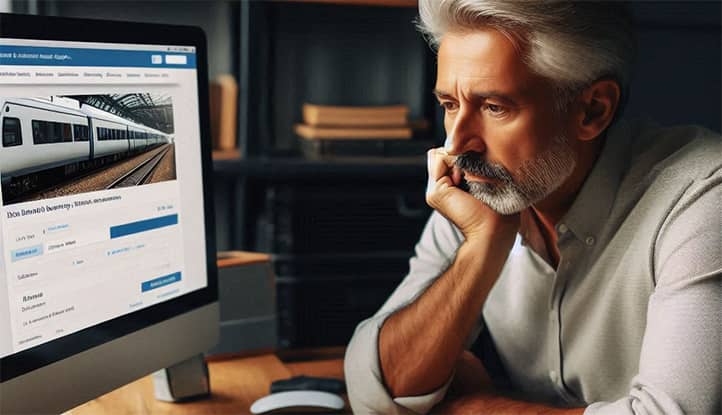Train travel isn’t just about getting from point A to point B; it’s a unique experience that starts long before you step onto the platform. The process of selecting and purchasing tickets plays a crucial role in shaping our expectations and mood for the upcoming journey.
Psychological factors influencing the process of purchasing train tickets are varied and include emotional state, personality traits, cultural context, and even subconscious triggers. Understanding these factors can help us make more informed choices and enjoy our journey to the fullest.

The Anticipation of Travel
The moment of buying a train ticket marks the transition from dreaming to reality. The virtual image of the future journey gains concrete details: dates, route, and carriage type. This transition is often accompanied by a surge of emotions, from joyful excitement to slight anxiety.
Psychologists note that the anticipation of travel can be as pleasant, if not more so, than the trip itself. This is when our brain actively creates positive scenarios, imagining new impressions and possibilities. Buying a ticket becomes the catalyst for this process, giving our dreams a tangible form.
Interestingly, the process of selecting and purchasing a ticket can influence our perception of the upcoming journey. A smooth, enjoyable purchasing experience can enhance positive expectations, while frustrations at this stage can cast a shadow over the trip before it even begins.
Emotional State in Trip Planning
Planning a trip often evokes mixed feelings: excitement, joy, anxiety. This emotional cocktail can significantly influence our ticket-buying decisions.
Research shows that a positive emotional state can lead to more optimistic and riskier decisions. For example, being in an elevated mood, we may opt for a more expensive ticket or take a risk with a layover, hoping for the best.
The Impact of Expectations on Ticket Selection
Our expectations for the trip play a key role in ticket selection. If we see the journey as an adventure, we may be more inclined to choose unusual routes or service classes. Conversely, if the trip is perceived as a necessity, we’re likely to look for the most practical and economical options.

Factors Influencing Decision-Making
Choosing a train ticket is a complex process involving various cognitive mechanisms. Our brain simultaneously processes multiple variables: price, travel time, schedule convenience, carriage type, carrier reputation, and more. This multifaceted nature makes decision-making an interesting subject for psychological analysis.
Research shows that people often use heuristic methods when faced with complex choices. Instead of analyzing all possible combinations, we tend to rely on simplified decision-making rules. For example, we might automatically exclude options above a certain price threshold or focus only on trains departing at specific times of the day.
It’s interesting to note the role of emotions in this process. Although we often think of ticket selection as a rational decision, emotional factors play a significant role. Fear of being late may push us to choose an earlier train, even if it’s less convenient. The desire to treat ourselves may tip the scales in favor of a more comfortable but expensive option.
Price vs. Comfort: Striking a Balance
One of the key factors in ticket selection is balancing price and comfort. Psychologically, we tend to look for a “golden mean” that satisfies our desire to save money without sacrificing comfort during the journey.
Interestingly, the perception of price-quality balance can change significantly depending on the context. For instance, during vacation, we may be willing to pay more for comfort than on a business trip.
Travel Time and Schedule: Evaluating Priorities
Time is a resource we constantly assess and try to optimize. When selecting train tickets, we often face a dilemma: choose a faster but more expensive route, or save money by spending more time on the road.
Psychologically, people tend to overestimate the importance of time in the short term. This often leads us to choose a faster, more expensive option, even if the time difference is minimal.
Companions: Choosing Between Solitude and Company
The choice between a compartment and open-plan carriage, an upper or lower berth, is not just a matter of comfort but also of social interaction. Introverts may prefer more secluded spots, while extroverts may enjoy the opportunity to socialize in a common carriage.
Psychologists note that our choice in this aspect often reflects our deeper needs for social interaction or solitude.

Seat Selection Psychology
Choosing a seat on the train is not just about physical comfort but also reflects our psychological needs and traits. Preference for a window or aisle seat, or choosing between an upper and lower berth, can reveal much about our personality and current emotional state.
Interestingly, our seat preferences may vary depending on the trip’s purpose. For a business trip, we may choose a seat with good lighting and workspace. For a vacation, the priority might be enjoying the scenery or ensuring comfort for long sleep.
Psychologists observe that the process of selecting a seat can be a form of exerting control over the situation. In a world where much is unpredictable, the ability to choose a specific seat provides us with a sense of control, albeit on a small scale.
Preferences for Upper or Lower Berths
The choice between upper and lower berths can reveal much about our personality and preferences. Those who choose upper berths often value privacy and are willing to sacrifice convenience for personal space. Those opting for lower berths may prioritize comfort and ease of access.
Interestingly, these preferences may change with age or depending on the purpose of the trip. Younger travelers are more likely to choose upper berths, while older people may prefer lower ones.
Position Relative to Restrooms and the Conductor’s Compartment
Choosing a seat relative to the restroom and conductor’s compartment is a balance between convenience and potential discomfort. Psychologically, we seek to minimize possible inconveniences without feeling isolated.
Studies show that people who choose seats closer to the center of the carriage are often more socially oriented and less concerned with potential inconveniences.
Preference for sitting facing or against the train’s direction may relate to our perception of control and safety. Those who prefer sitting facing forward often like to feel in control of the situation.

The Role of Information and Its Presentation
The information age has transformed the process of buying train tickets beyond recognition. Today’s traveler has access to an abundance of data: from detailed characteristics of each carriage to reviews from previous passengers. However, this information flow can be both helpful and overwhelming, complicating decision-making.
Cognitive psychologists study how our brains filter and process large volumes of information when making decisions. Interestingly, an excess of data can lead to the “paradox of choice”—a situation where the large number of options complicates rather than simplifies decision-making and can even cause stress.
Not only the amount but also the presentation of information is crucial. Data visualization, intuitive interfaces, and well-crafted descriptions can significantly influence our choice. Studies show that even the order in which options are presented can have a substantial impact on the final decision.
Influence of Site/App Design on Selection
The design of the interface through which we purchase tickets can significantly influence our decisions. Bright, attractive images may encourage choosing more expensive options, while clear, straightforward information presentation fosters more rational choices.
Psychologists note that even the psychology of color in design can influence our decision. For example, blue often evokes trust and can increase the likelihood of making a purchase.
The Importance of Reviews and Recommendations from Other Travelers
In the age of social media, reviews and recommendations from other travelers play an increasingly significant role in our choices. Psychologically, we tend to trust the experiences of “people like us” more than official information from the carrier.
Interestingly, negative reviews often have a greater impact on our perception than positive ones. This is due to the “negativity bias” in psychology, where we assign more importance to negative information.
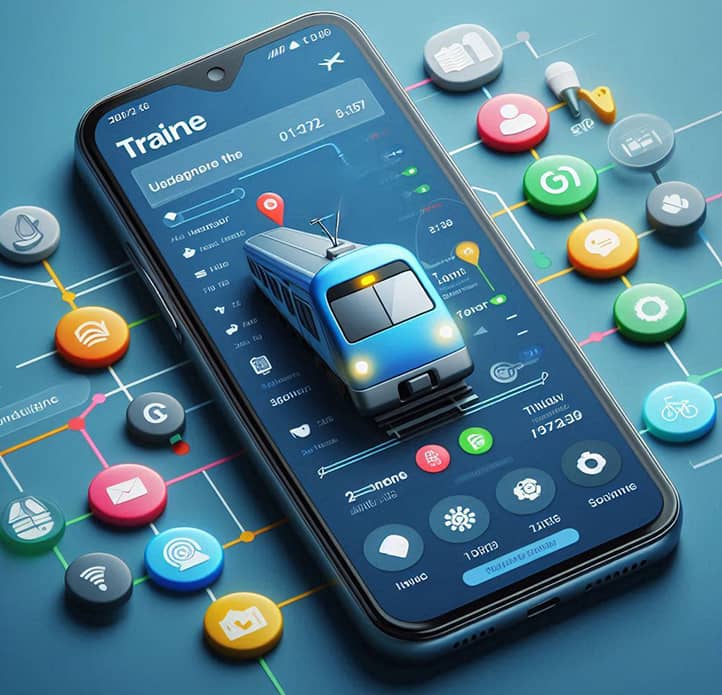
The Time Factor in Ticket Purchase
Time is a crucial factor in the psychology of purchasing train tickets. It affects not only the ticket’s price but also our emotional state during the selection process. The phenomenon of “temporal distance” in psychology explains why we assess and choose train tickets differently depending on how far the departure date is.
It’s interesting to observe how our attitude towards price and comfort changes as the travel date approaches. Weeks before the trip, we tend to focus more on price, carefully comparing options. However, as the departure date draws closer, factors like comfort and schedule convenience gain importance, while price moves to the background.
Psychologists note an intriguing paradox: although early booking is often more cost-effective, many people delay ticket purchases until the last moment. This could be due to our tendency to procrastinate, as well as the desire to maintain flexible plans and avoid early commitments.
Early Booking vs. Last-Minute Purchase
The choice between early booking and last-minute purchases often reflects our approach to planning and risk tolerance. Those who prefer early booking usually value certainty and are willing to pay for it. On the other hand, last-minute buyers may enjoy the thrill of uncertainty or hope for better deals.
Psychologists note that our choices in this area are often linked to broader behavioral patterns in other aspects of life.
Stress from Limited Options and Ticket Scarcity
Situations where tickets for a desired trip become scarce can cause significant stress. This is related to the psychological phenomenon of “scarcity,” where a limited resource becomes subjectively more valuable.
Interestingly, this stress can lead to impulsive decisions, such as purchasing more expensive tickets or choosing less convenient departure times simply to “secure” a spot.
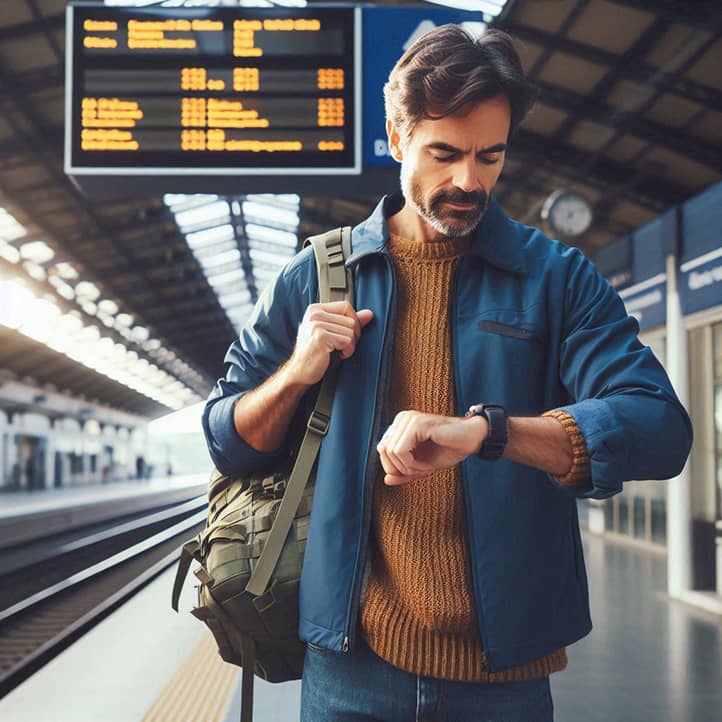
Personality Traits and Their Influence on Choice
A person’s psychological profile plays a significant role in their train ticket selection process. It turns out that basic personality traits, like risk tolerance or avoidance of uncertainty, can significantly impact preferences regarding purchase timing, ticket type, and even seat location.
Research shows an interesting correlation between personality traits and behavior in ticket purchases. For example, people with high levels of neuroticism often choose more expensive and reliable options, aiming to minimize potential stress. In contrast, those high in openness are more inclined to experiment, choosing unusual routes or new types of train cars.
It’s also interesting to note that our personality traits influence not only the final choice but also the decision-making process itself. Extroverts may enjoy discussing options with friends or consultants, while introverts prefer a calm, independent analysis of online options.
Planners vs. Spontaneous Travelers
The inclination toward planning or spontaneity also plays a significant role in the ticket selection process. “Planners” tend to study all options in advance, compare prices, and book well before the trip. Spontaneous travelers enjoy the uncertainty and the option to decide at the last moment.
Interestingly, these different approaches can create friction when planning joint trips, as people with different styles try to come to a common decision.
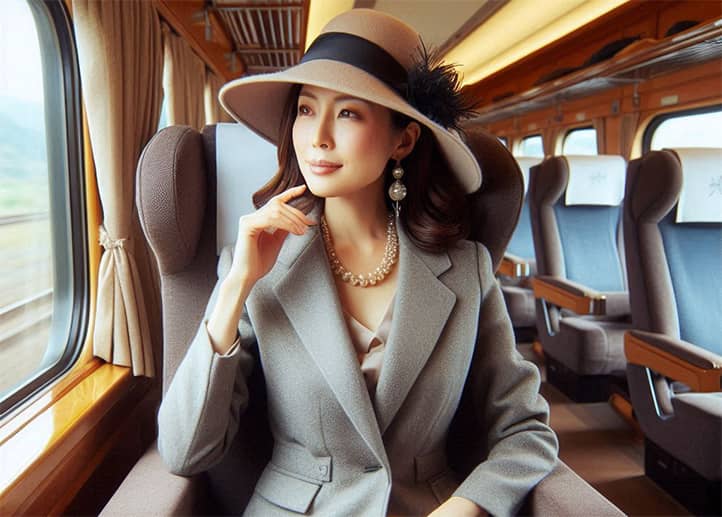
Cultural and Social Aspects
Cultural context surprisingly plays a significant role in the process of choosing train tickets. What is considered normal and comfortable in one culture may be perceived quite differently in another. For example, in some Asian countries, traveling in a noisy, communal car can be seen as an opportunity for social interaction, while in other cultures, this is viewed as undesirable discomfort.
Social norms and expectations also significantly influence our choices. In societies where status is highly valued, the choice of service class may be driven not so much by personal preference but by a desire to meet the expectations of one’s social circle. This leads to psychological conflicts between personal desires and social obligations.
It is interesting to observe how globalization and cultural exchange affect these aspects. Travelers who frequently cross cultural boundaries can develop a more flexible approach to ticket selection, adapting to various cultural norms and expectations. This creates a fascinating phenomenon of “cultural flexibility” in the context of travel.
The Influence of Social Status on Service Class Choice
The choice of service class may be related not only to personal comfort but also to the desire to confirm or enhance one’s social status. People often choose more expensive options not because they truly need extra comfort but because they want to project a certain image.
Interestingly, this influence can be both external (desire to impress others) and internal (upholding one’s self-perception of status).

Psychological Tricks and Manipulations in Ticket Sales
The world of train ticket sales is a true laboratory of psychological manipulation. Marketers and behavioral economics experts are constantly developing new methods to influence our choices. Understanding these mechanisms not only helps protect against unwanted manipulation but also provides an intriguing insight into our own minds.
One of the most powerful psychological techniques is the creation of artificial scarcity. Messages like “only 2 tickets left at this price” or “special offer ends in an hour” activate ancient survival mechanisms in our brains, prompting quick and impulsive actions. Paradoxically, even understanding this mechanism doesn’t always protect us from its effects.
The framing effect is another powerful tool for influencing our choices. The way ticket information is presented significantly affects our decision. For example, the phrase “save 20%” sounds much more appealing than “pay 80% of the full price,” even though it’s the same offer.
The Psychological Impact of Additional Options
Offering more expensive options is often based on the psychological principle of contrast. After we’ve already decided to make a purchase, it’s easier for us to agree to a slight price increase for additional comforts.
Interestingly, the effectiveness of this tactic often depends on how the additional option is presented. If it’s perceived as a “small surcharge” for a significant improvement, people are more likely to agree.
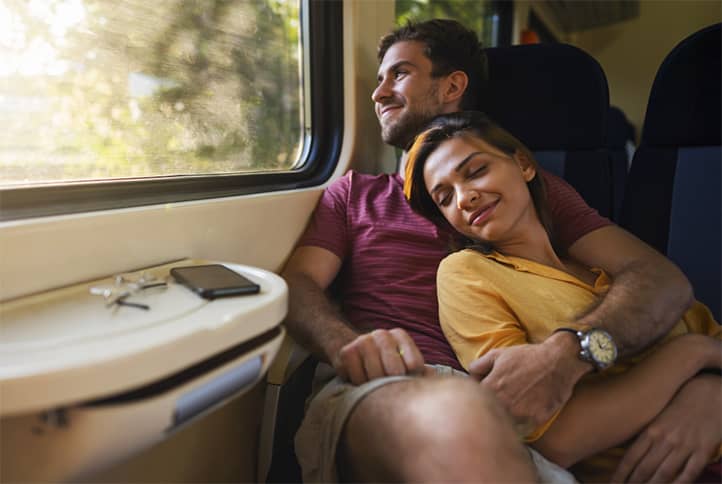
Satisfaction with the Choice
The process of evaluating our choice after purchasing a ticket is an exciting area for psychological research. Our satisfaction often depends not so much on the objective characteristics of the selected option as on our subjective expectations and interpretations.
The phenomenon of choice confirmation shows that after making a decision, we tend to seek information that confirms the correctness of our choice and ignore contradictory data. This mechanism helps us maintain a positive attitude towards our decision but can also lead to a distorted perception of reality.
Psychologists observe an interesting pattern: often, the greatest satisfaction comes not from the ideal choice but from a choice made independently. Research shows that people who were imposed an “ideal” option are often less satisfied than those who independently chose a “good” option. This underscores the importance of control and autonomy in the decision-making process.
Cognitive Dissonance After Purchase
After purchasing tickets, we often face a phenomenon in psychology known as cognitive dissonance. This state of psychological discomfort arises when our actions don’t match our beliefs or when we encounter contradictory information.
In the context of buying train tickets, cognitive dissonance can manifest as doubts: “Did I make the right choice?” “Should I have chosen a different departure time or service class?” These thoughts can arise even after carefully analyzing all options and making what seems like the optimal decision.
The degree of cognitive dissonance is often proportional to the importance of the decision and the complexity of the choice. The more time and effort we’ve invested in the decision-making process, the stronger the dissonance can be afterward.
Ways to Increase Satisfaction with the Choice Made
There are several psychological strategies to help increase satisfaction with the choice made and minimize cognitive dissonance:
- Focus on the Positive Aspects. Consciously concentrating on the benefits of the selected option helps reinforce confidence in the decision. For example, if you chose a more expensive high-speed train ticket, focus on the time savings and increased comfort.
- Acceptance of the Decision. Psychological acknowledgment that the decision is made and cannot be changed helps reduce anxiety and doubts.
- Limiting Alternative Searches. After purchasing the ticket, it’s helpful to stop looking and comparing other options. This helps avoid regrets about “missed opportunities.”
- Sharing the Experience with Others. Discussing the upcoming trip with friends or family helps enhance positive expectations and reduce focus on potential drawbacks of the choice.
- Planning Trip Details. Shifting attention from the ticket purchase itself to planning other trip aspects (what to visit, where to stay) can reduce the anxiety associated with the choice.
Psychologists note that the ability to cope with cognitive dissonance and increase satisfaction with one’s decisions is a valuable skill that is useful not only when purchasing tickets but also in other life situations.
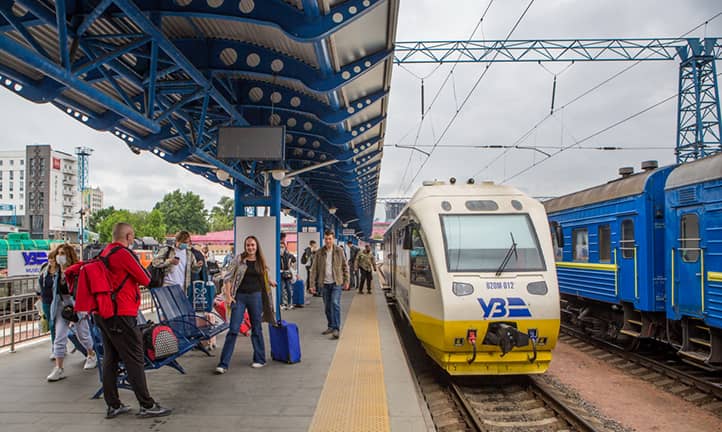
Conclusion
The process of selecting and purchasing train tickets is a much more complex and multifaceted phenomenon than it appears at first glance. It touches upon numerous psychological aspects of our personality:
- Emotional state and expectations play a key role in shaping our preferences and decisions.
- The balance between price and comfort reflects our priorities and values.
- Personality traits, such as introversion/extroversion or a tendency toward planning/spontaneity, significantly influence our choice.
- Cultural context and social status can determine our preferences in service class and seat type selection.
- Psychological mechanisms like “fear of missing out” or cognitive dissonance play a crucial role in decision-making and subsequent assessment of that decision.
- Interface design and information presentation can significantly influence our choices, often on a subconscious level.
Understanding these psychological aspects gives us the opportunity not only to make a more conscious choice when purchasing tickets but also to enhance overall travel satisfaction.
Tips for Mindful Ticket Selection
Based on the discussed aspects, here are some practical tips for making a more conscious choice:
- Identify Your Priorities. Before starting your ticket search, clearly determine what is most important to you – saving money, comfort, speed, or the ability to work during the journey.
- Consider Your Personality Traits. If you’re an introvert, opt for a more secluded seat.
- Don’t Succumb to Artificial Urgency. Remember the marketing tactics that create a sense of urgency. If possible, take a pause before making your final decision.
- Systematically Compare Options. Create a system for comparing different options, taking all important factors into account. This will help you make a more objective choice.
- Plan Ahead but Leave Room for Flexibility. Early planning often allows you to get the best prices, but consider flexible tickets if your plans might change.
- Focus on Positive Aspects After Purchase. Instead of doubting your choice, focus on the positive sides of your decision and on planning other details of your trip.
- Use Your Experience for Future Decisions. After your trip, assess how well your choice met your expectations and needs. Use this knowledge when planning future journeys.
Remember, there is no perfect choice, and every decision has its pros and cons. A mindful approach to choosing train tickets will help you not only optimize the purchasing process but also increase overall satisfaction with your journey.
